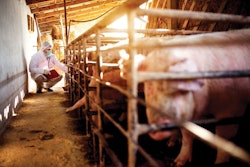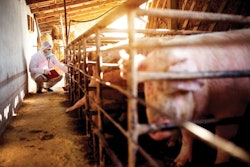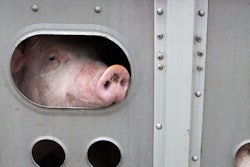
Control of African swine fever (ASF) is gradually being achieved In the Dominican Republic, according to a recent report in La Terre.
With support from the United States and Canada, local authorities there are increasingly able to identify outbreaks early, and take action to stop the virus spreading. Furthermore, the experiences are helping to improve the response to animal diseases generally.
One ongoing issue identified by the Inter-American Institute for Cooperation in Agriculture (IICA) in the report is reluctance among some owners to report health issues in their animals to the authorities.
In April 2021, ASF virus was first detected in the Dominican Republic, according to the official notification to the World Organisation for Animal Health (WOAH).
Since then, 290 outbreaks involving a total of approximately 22,700 pigs have been reported to the agency. Of the country’s 32 provinces, cases have been confirmed in 26. Almost all of the outbreaks involved backyard herds, and the most recent one began in October 2022.
The agriculture ministry reported in July 2023 that ASF was under control in the Republic — but not yet eradicated.
Challenges continue for ASF control in Haiti
According to the article in La Terre, ASF control has been more challenging in Haiti. This is due to a combination of political instability, the widespread ownership of backyard pigs, and an apparent lack of official will, according to the IICA.
By the end of August 2021, the ASF virus had spread to neighboring Haiti.
Up to March 2022, the national veterinary authority had notified WOAH of 31 outbreaks of the disease involving just over 600 domestic swine — also mainly in backyard herds. Cases were detected in eight of Haiti’s 10 departments.
Within the Americas region, ASF has only been detected in the adjacent Hispaniola island states of Dominican Republic and Haiti.
Up to the end of last month, 53 outbreaks of ASF in domestic swine had been recorded in this region since January 2022, according to the latest situation report from WOAH. These have resulted in the loss of almost 5,000 pigs as a result of mortality and preventative culling.
View our continuing coverage of the global African swine fever situation.

















